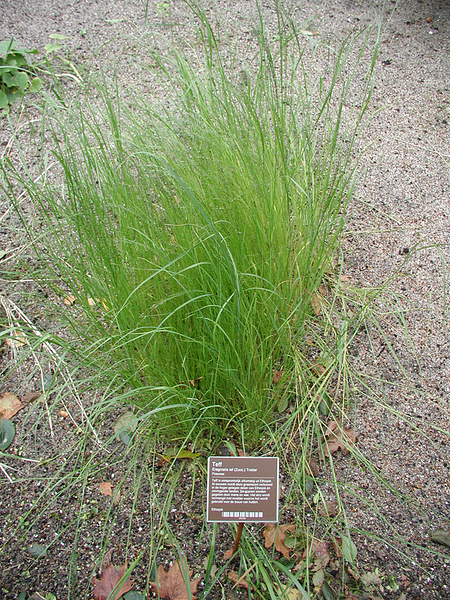
Not much to look at, but if you squint hard you can read the label: teff. The Food Programme from BBC Radio 4 devoted an entire programme to this ancient Ethiopian grain, new darling of “the health-conscious Western world”. And if quinoa had you worried about the impact you might have on poor farmers who grow the stuff, fear not. This is one bandwagon you can climb aboard with clear eyes and full hearts, because back in 2006 the government of Ethiopia presciently banned its export in order to keep supplies available and affordable for the domestic market. So, as The Food Programme explains, all the tef you eat outside Ethiopia was grown elsewhere (or is very stale). There are some suggestions that Ethiopian farmers would actually like to follow their Bolivian brethren onto the global market, but for now, feel free to dive into tef knowing that you are not taking it from the mouths of the Ethiopian farmers who nurtured it for all those millennia.
